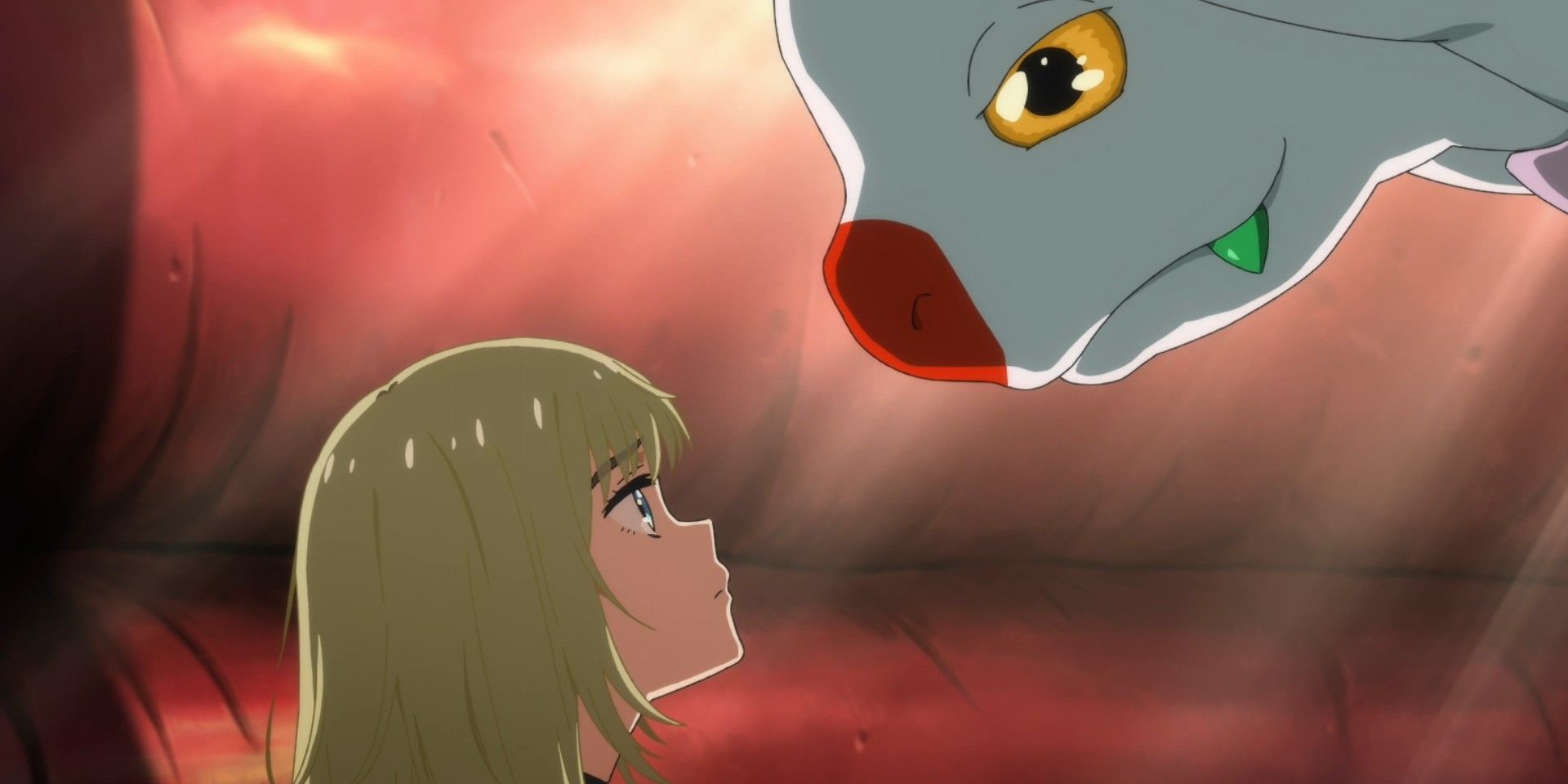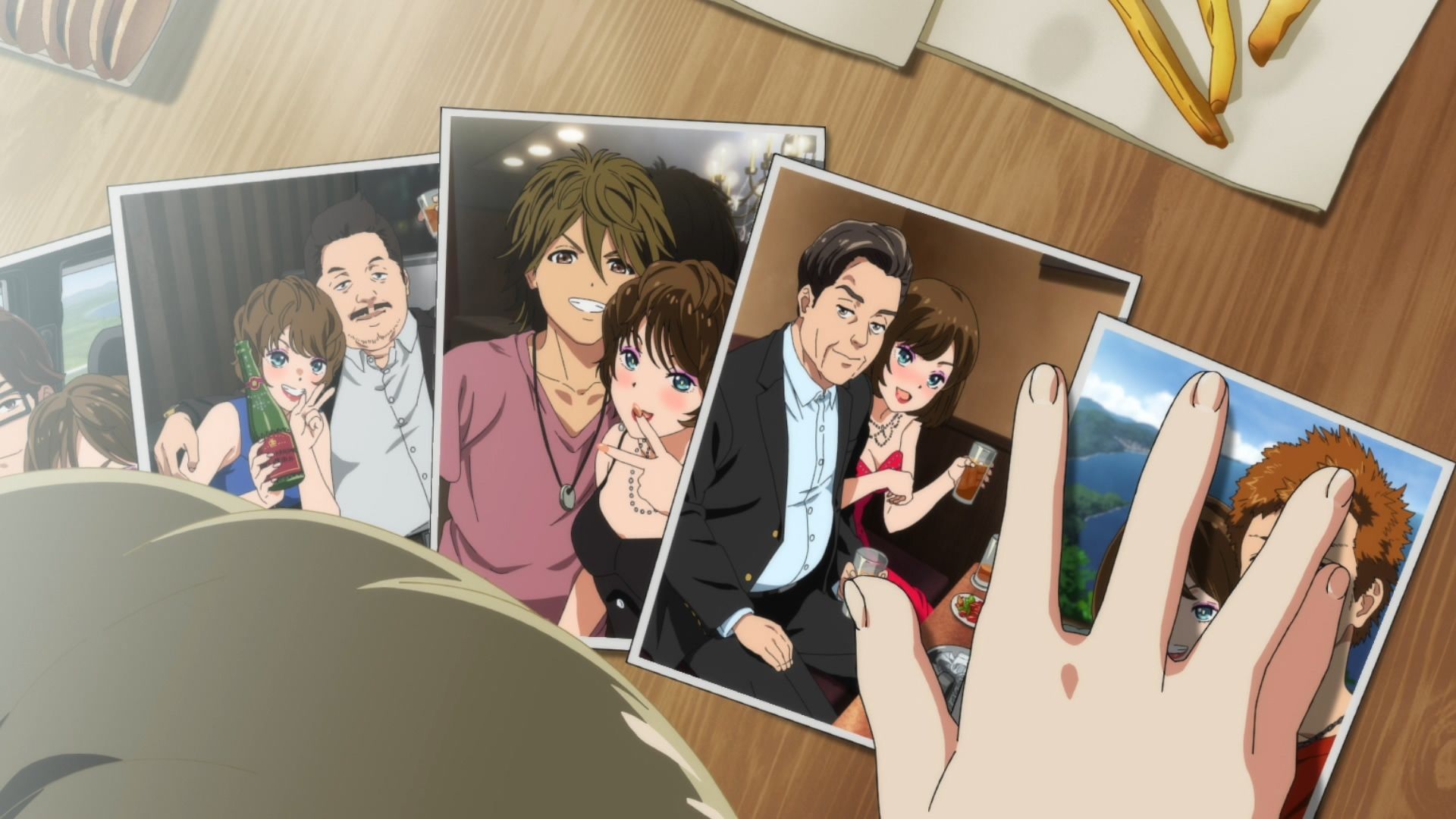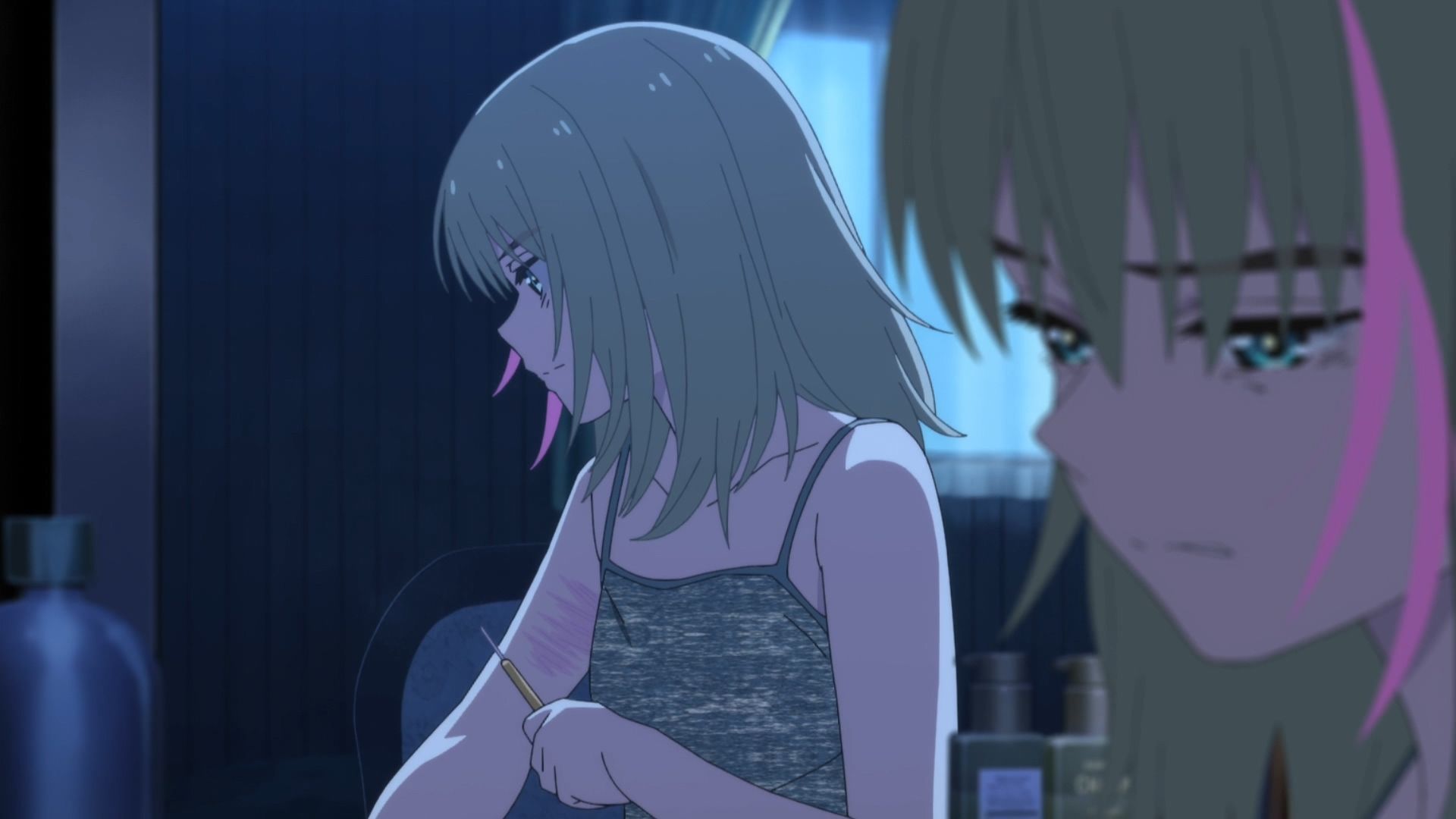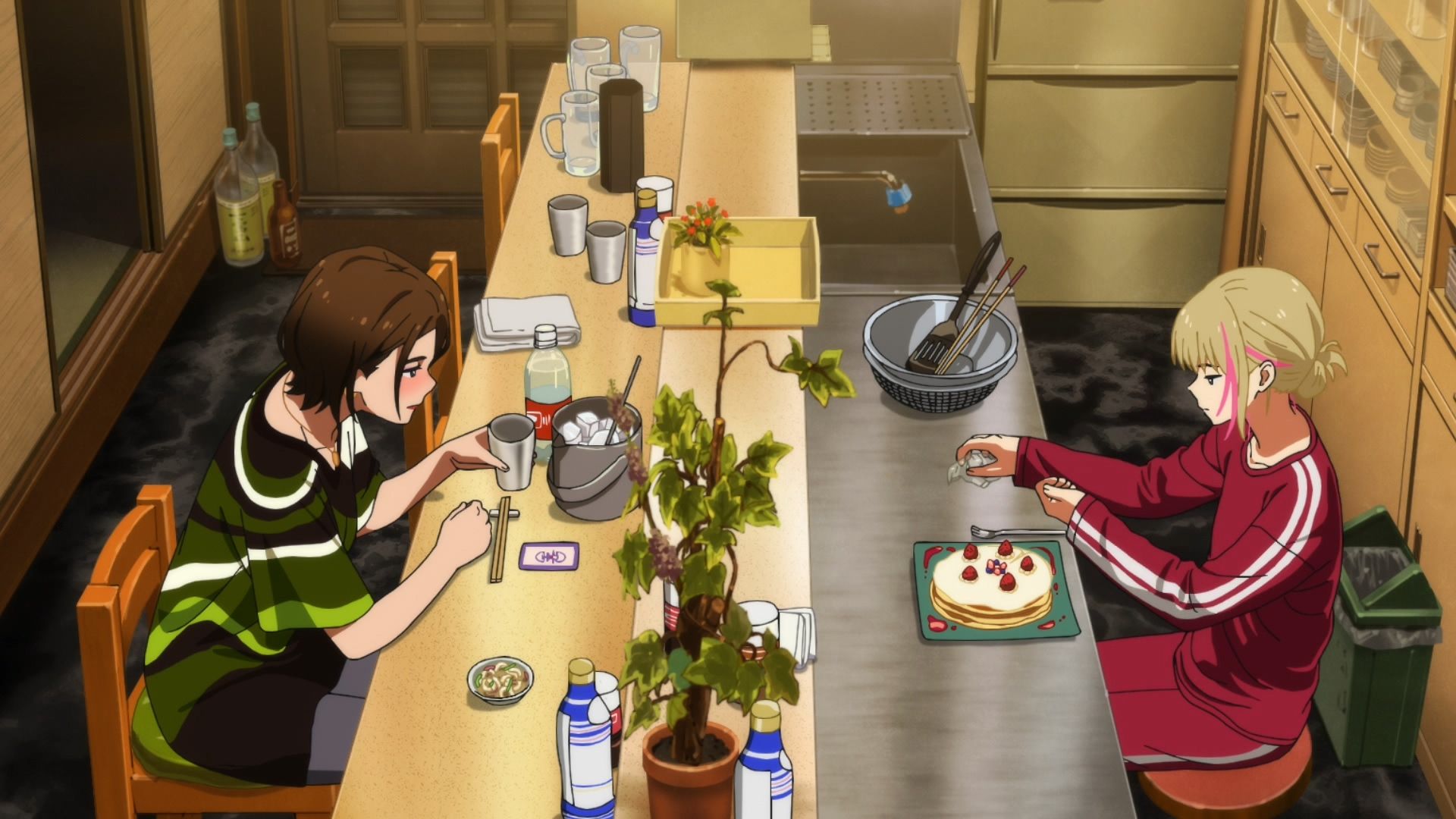
WARNING: The following contains spoilers for Wonder Egg Priority Episode 7, “After School at 14,” now streaming on Funimation, and discussion of self-harm and suicide.
Since her introduction in Episode 3 of Wonder Egg Priority, it's been known that the seemingly carefree Rika has been self-harming for quite some time, but the reason for this was not explained. Until now, Rika had only dropped brief hints during conversations about her troubled home life, but Episode 7 finally gives the full story on how her family situation drove her into a deep depression.
Just like Ai, Rika lives with a single mother. Unlike Ai, who sees her father once a month, Rika never really knew her father. Her only memory of him is when he told her that beautiful girls don’t need wallets. She can't even be sure that it was her father she remembers, because her alcoholic mother says there are five different men who might possibly be her father.

Rika is adamant about knowing her real father, but her mother refuses to let her know his identity. Rika’s mother claims the father abandoned them, but this statement seemingly contradicts her claims of uncertainty about who the father even is. Rika resents her mother for her lies, which is a part of the reason why she starts to self-harm.
As Rika nonchalantly complains to the other girls about her mother, Momoe thinks she is being too harsh, but Neiru sees through her facade and points out that Rika has a co-dependent relationship with her mother that she can’t escape from. Rika is triggered by Neiru, probably because she is right. She desperately wants to find her father because she sees it as the only way out of her current situation. Ai, being the only other girl with a single mother, understands Rika’s complex feelings for her mother, but she doesn't know how to help Rika.

Rika reverts back to self-harm on the night of her birthday. Later on, during her dream fight, Rika encounters an egg girl who belonged to a cult; she committed suicide with her parents after giving the cult leader all their fortunes. The egg girl recognizes the self-afflicted scars on Rika’s arm because she used to do the same. The girl doesn’t seem to regret her death and tempts Rika to stop fighting and give in to death like her. Rika succumbs to the temptation of death and allows the cult leader monster to consume her, while none of her friends can reach her.
Fortunately, Rika’s new pet, the turtle Mannen, jumps in front of Rika and takes the monster’s attack for her. Rika remembers that this is because Mannen had imprinted on her, so it is trying to protect its mother. This sudden realization makes Rika understand the burden of motherhood and the bond between mother and child, inspiring her to fight back and defeat the monster. With this near-suicide, Rika is finally able to confront her traumas, accept her own weakness and continue living.

Throughout Episode 7, multiple details show Rika’s mother’s love for her. She remembers Rika’s birthday even when she's hungover. A customer at her izakaya knows Rika’s birthday, meaning her mother told him about it. She even handmade a birthday cake for Rika, which Rika ignored at first. The reason her mother wants to keep Rika away from her father is probably that she fears that Rika would abandon her after meeting him, or that he may cause both of them further harm.
Rika’s mother may not be a good mom, but she is the only one there for Rika when her father wasn’t. Rika understands her pain deep down, but she is also the only person that Rika can blame for her misery. It is a co-dependent relationship where they both have to learn to live with the pain of life together.
For more information on the warning signs and prevention of suicide, click here. If you or someone you know is in emotional distress or considering suicide, call the National Suicide Prevention Lifeline at 1-800-273-TALK (8255). If you live outside the U.S., click here for a list of international hotlines.
0 Comments